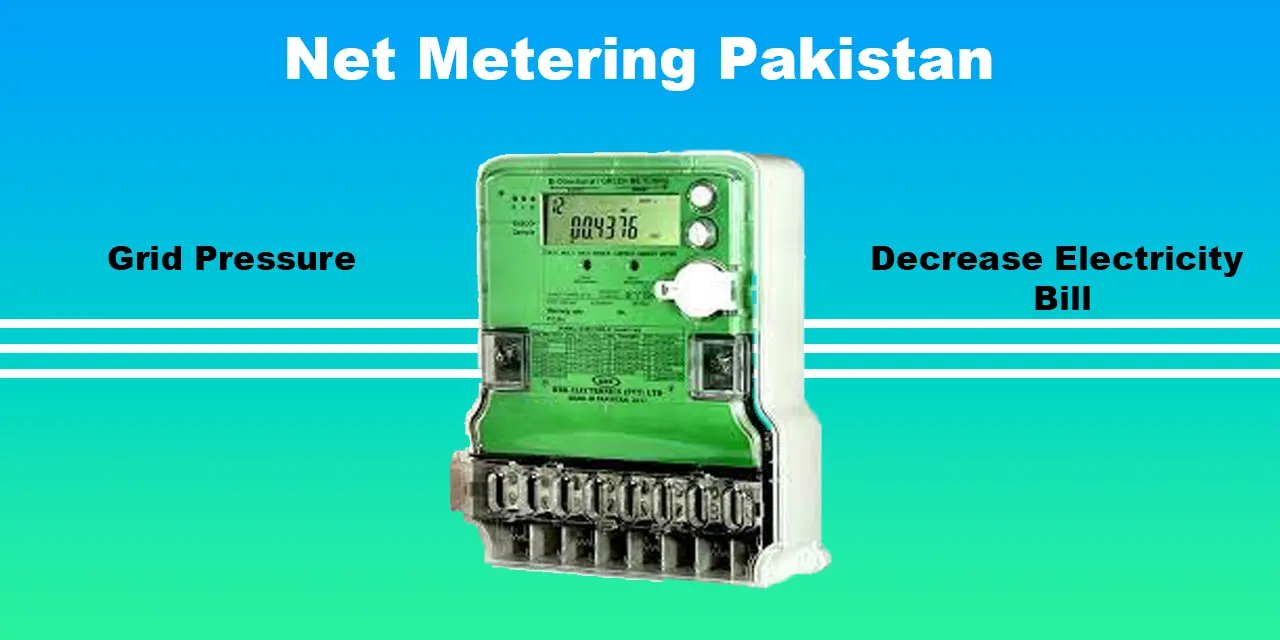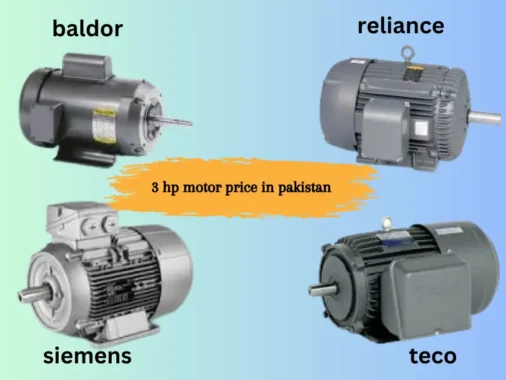As electricity unit price in pakistan increased as maximum that why Net Metering Pakistan is a growing number of homes in Pakistan that are switching to renewable energy by using net metering to capture solar energy. Approximately 150000 to 170000 households nationwide have taken advantage of the net metering facility, enabling them to produce their electricity and support a sustainable future. The net metering Pakistan has become increasingly important as more people think about implementing this green energy solution in order to comprehend the advantages and financial ramifications of this novel strategy.
What is Net Metering Pakistan?
An electricity tariff is the price plan or schedule that utility companies or government regulators set out to charge consumers for the electricity they use. Net Metering Pakistan describes the precise costs and charges related to using electricity, taking into account variables such as consumption levels, usage patterns, customer classification, and the infamous fuel adjustment fees.
The Net Metering Rates in Pakistan, which determines how much customers are charged based on their electricity usage, is the cost per unit of electricity consumed. In contrast, the tariff covers the entire pricing structure. The prices at which electricity is purchased from and sold back to the grid are referred to as net metering tariffs.
The potential savings, payback times, and total return on investment for customers who choose to implement net metering are all directly impacted by these rates. The rate (tariff) that the National Electric Power Regulatory Authority (NEPRA) charges customers in the context of net metering compensation is frequently less than the rate at which they purchase the electricity back from solar system owners. Further details are covered in the sections below.
What are Net Metering Price in Pakistan?
The financial advantages and practicality of implementing net metering Pakistan are largely dependent on net metering rates, sometimes referred to as Net Metering Pakistan. The National Electric Power Regulatory Authority (NEPRA) and consumers are governed by the net metering Pakistan, which is currently set at Rs. 19.32 per kilowatt-hour (kWh).
Knowing the difference between off-peak and peak rates is crucial when discussing net metering. Off-peak rates are those that are less expensive for electricity used at certain times of the day when there is less of a demand for it, usually in the late evening or early morning. Conversely, peak rates are associated with more expensive electricity that is charged during times when there is a high demand for electricity, typically between the hours of 5 and 10 p.m.
September Update: The NEPRA sought to reduce solar system owners’ net metering rates. So, congrats to all of you! NEPRA repurchases electricity at off-peak prices. And with good reason. The majority of our electricity use occurs during peak hours, which are typically from 5 to 10 p.m., and solar power systems only produce electricity during off-peak hours.
Let’s examine a situation in which a home with a 5kW solar system produces 6kWh of electricity each month. They export the remaining 600 units to the grid and use 200 of them themselves. Off-peak electricity rates apply because this is produced and used during off-peak hours.
You import electricity from WAPDA at the same time. As early in the morning, before the sun rises. Assume that 80 units of electricity are used.
- Six hundred units of electricity were produced.
- Four hundred units of electricity are sent to the grid.
- 80 units of grid-imported electricity
- Net Metering Price in Pakistan is the sum of energy sent into and imported from the grid.
- Balance for Net Off-Peak Hours: 80 x 19.32 – 400 x 19.32 = 1545 – 7,728 = Rs. -6,128
- As solar systems no longer produce electricity at night, all electricity used at homes now comes from the grid (WPADA). And that is sold at higher rates during peak hours.
- Assume the rate is Rs. 25/kWh, and you use 200 units.
- Units of energy sent to the grid = 0
- Two hundred units of energy were used.
- 200 x 25 = Rs. 5,000 is the net peak hours bill. Peak net Price minus off-peak net Price is the total monthly bill.
- Thus, the monthly total bill will be Rs. -1,126 (5,000 – 6,128 = ).
- It indicates that you would receive -1,126 from the grid for that month.
How Can I Apply in Pakistan for Net Metering Pakistan?
With the amazing Net Metering Pakistan program, which NEPRA introduced in 2015, people can easily export any excess electricity they produce to the national grid. NEPRA has delineated a detailed application procedure for net metering in Pakistan. Let’s examine each stage of the Pakistani net metering application procedure one by one.
Installation of Solar Systems
It is imperative to install a solar PV system at your residence prior to applying a net metering system in Pakistan. The solar system has to have a three-phase meter connection and be either hybrid or on-grid. After all, there wouldn’t be anything to export to the national grid if a solar PV system wasn’t installed. Thus, in order to benefit from Pakistan’s net metering facility, you must install solar panels on your roof.
Speak with a Solar Company Registered with the AEDB
The first thing you should do if you already have a solar system is get in touch with a local AEDB-registered solar company. Why is it not possible to apply for net metering Pakistan on your own?
The reason is that NEPRA does not permit individual applications for net metering. Instead, you must collaborate with a solar company that has been authorized to oversee the net metering application process. Speak with the solar company and give them the go-ahead to submit the Pakistani net metering application.
Getting the Application Ready
Your net metering application process starts the moment you get in touch with an AEDB-registered solar company like Alpha Solar. At this point, the business will ask to see your electricity bill and National ID card, among other important documents. They will forward it to the relevant department and provide comprehensive support throughout the entire application process.
Examination and NOC Issue
After the application has been accepted, the next step in the procedure is an inspection by the Punjab Energy Department, which then issues a No Objection Certificate (NOC) in compliance with SRO 892 (1) / 2015. This stage guarantees adherence to and upkeep of all rules and specifications.
Agreement Signature
Following the No Objection Certificate’s issuance, a contract is signed by the customer and the neighborhood electricity supplier, like LESCO. For the next three years that the agreement is in effect, you are allowed to export any excess electricity that your solar panels produce to the national grid.
Generation License Allotment
The signed agreement is then sent for verification to NEPRA, the National Electric Power Regulatory Authority. This important step gives you the official generation license and guarantees that all regulations are followed. For three years, this license acts as your permission to operate as an independent power producer and produce electricity. Having this license in hand gives you the legitimacy and power to use your solar power generation to add to the country’s energy system.
Turning on Net Metering
As soon as the generation license is successfully obtained, your net metering services will start up. Your house will have a net meter installed, and you will be able to sell electricity to the grid and make money.
Pakistani Context for Net Metering
With the help of a technology called net metering, Pakistani customers can produce their electricity from renewable resources like solar panels and share any extra with the national grid. It makes it possible for people and companies to produce and consume energy simultaneously, promoting a more sustainable energy environment. In Pakistan, net metering is governed by the National Electric Power Regulatory Authority (NEPRA), which is in charge of power regulation in that country.
In order to guarantee the seamless operation and broad acceptance of net metering, NEPRA is essential in the development and execution of net metering policies. Net metering in Pakistan is governed by the NEPRA’s Net Metering Regulations of 2015, which outline the procedures and policies for consumers who wish to install renewable energy systems and link them to the grid. According to the net metering policy, you can participate in net metering if your solar system is between 1kW and 1MW in size.
- There is a three-phase connection.
- The solar system is yours.
- A certified solar installer installed the system.
- You have an account with a distribution company (DISCO) for electricity, like IESCO, PESCO, LESCO, and so on.
- Your system recycles any excess energy it produces back into the grid, giving customers credit or payment for the extra electricity they generate.
Benefits Of Net Metering in Pakistan
Decrease Electricity Bill
The main advantage of Net Metering is that it allows you to significantly lower your electricity costs compared to what you could achieve with a solar system without Net Metering. You are receiving payment from the government for the electricity you have shared with others, and you are currently selling any extra electricity you generate to the national utility grid.
There is no requirement to Install Pricey Battery Storage Devices.
Solar batteries can be quite expensive to buy, but if you don’t store the excess energy your solar system generates in the batteries, it will be wasted. In addition, their lifespan is comparatively shorter than that of the remaining solar system components.
Motivate Customers to Switch to Renewable Energy
Because of net metering’s many advantages, more people are switching to solar power. It can eventually halt the environment’s continued degradation and aid in the preservation of non-renewable energy sources. Future generations can live in a better world thanks to our use of renewable energy.
Grid Pressure
You can help address the nation’s electricity deficit by contributing extra power to the grid. The grid can carry the electricity you supply to other homes, relieving some of the strain on it.
How Much Time Is Needed to Install Net Metering?
After the solar system is installed, the Net Meter installation and operation may take thirty to sixty days.






